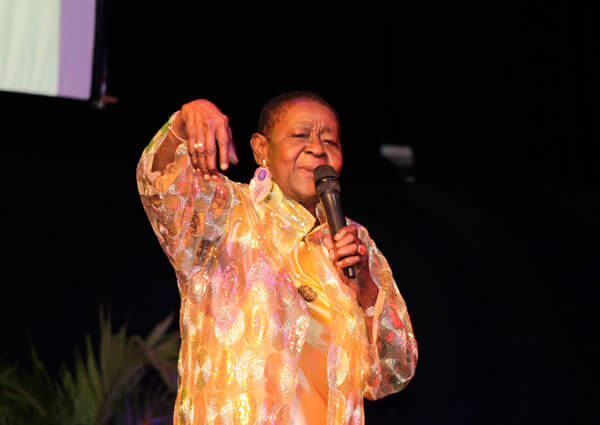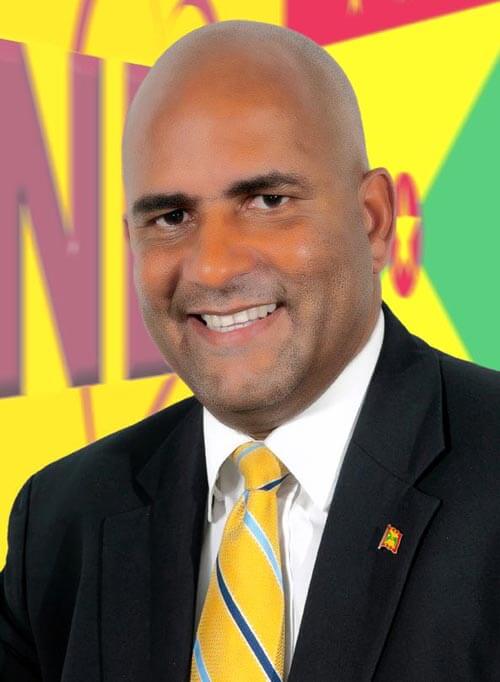Grenadian Theophilus Albert Marryshow was known throughout the Caribbean as the “Father of West Indies Federation.”
He was regarded as an ardent advocate of closer association of the islands of the region all his life, leading campaigns in all West Indian colonies with that object in view, according to CARICOM (Caribbean Community) Perspective.
Born Nov. 7, 1887, Marryshow received primary education at the St. George’s Methodist School in Grenada.
He started life as an office boy at the age of 16 in the then “Federalist and Grenada People,” and was its sub-editor and book reviewer at 19.
In 1915, he co-founded the “West Indian,” which he later owned outright and edited until 1924, according to CARICOM Perspective.
It said Marryshow was a prime mover around 1905 in spreading branches of Literary and Debating Societies in Grenada. The movement was later adopted in other islands.
After years of preparation in municipal life, CARICOM Perspective said Marryshow took a leading part in politics and in West Indian affairs generally, with emphasis on the right of all West Indian people to elect their own chosen representatives in inter-colonial legislatures.
As a result of his persuasion, CARICOM Perspective said the then secretary of state for the colonies appointed a commission, which was sent to the West Indies to enquire into constitutional reform.
The report of the commission was favorable; and, as a result, Grenada and the rest of the Windward Islands, the Leeward Islands and Trinidad and Tobago gained a “first measure of representative government in the right to popular election on a quota of members to their legislative Councils,” CARICOM Perspective said.
Through his ceaseless agitation in press and on platform, there was steady constitutional development in the West Indies, it said.
Marryshow was the first deputy president of the Grenada Legislative Council, 1951 to 1954, and member of the Executive Council from 1942 to 1954.
He sat as elected member for the capital town of St. George’s since the inauguration of the new Legislative Council with elected members in 1925.
“His unbroken period of service, 30 years in the same seat, was said to constitute a parliamentary record for the Dominions and Empire,” CARICOM Perspective said.
It said Marryshow, who died on Oct. 6, 1958, was referred to in influential quarters in Britain as “The Elder Statesman of the West Indies.”
In the “Marryshow of Grenada: An Introduction” Jill Sheppard wrote that Marryshow was one of the key figures in the political history of Grenada and the West Indies Federation.
Marryshow was registered as Theophilos Maricheau, son of P.I. Maricheau, a small planter, and Eugenia de Souze.
His mother died in 1890, and the boy was brought up by his godmother, Christine, housekeeper and later wife of Antonio Franco, a Portuguese merchant, Sheppard said.
After a brief apprenticeship to a carpenter, in 1903, Franco obtained a job for the young Marcheau in the printing establishment of W.G. Donovan, initially to deliver newspapers.
Sheppard said Donovan produced “notably radical newspapers, advocating representative government and a Federation of Britain’s West Indian colonies.”
Marryshow (he adopted an Anglicized spelling of his last name) demonstrated literary abilities that were soon recognized by Donovan who became his mentor, Sheppard said.
“‘Teddy’ Marryshow was soon involved in the whole range of journalistic activity, as well as becoming an active participant in local politics and in the Grenada Literary and Debating Society,” she said.
By the time of Franco’s death in 1916, Marryshow had himself acquired a paper of his own, “The West Indian,” whose name signaled the continuation of Donovan’s political goals, Sheppard said.
The first number, Jan. 1, 1915 promises “an immediate and accurate chronicler of current events, an untrammeled advocate of popular rights, unhampered by chains of party prejudice, an unswerving educator of the people in their duties as subjects of the state and citizens of the world” and hopes for “the day when, our islands linked together in an administrative and fiscal union, the West Indian Dominion will take its place, small though that may be, in the glorious Empire.”
Sheppard said this, and the replacement of Crown Colony Government by representative democracy in each of the territories that it entails, remained Marryshow’s “steady goals in years of continual journalistic and political struggle in Grenada, under the slogan ‘Educate, Agitate, Federate’ and as a participant in wider movements for black empowerment.”
Among Marryshow’s early political successes in Grenada were the establishment of the Representative Government Association in 1918, which led, in 1920, to some changes in the way members of the Legislative Council were chosen, and, in 1922, to a visit by a special Commission which recommended an increase in the number of elected members, Sheppard said.
Marryshow himself was elected representative for St George’s for most of his life, Sheppard noted.
She said Marryshow participated in various activities designed to promote Federation, including the one and only meeting of the Standing Conference in 1929 in Barbados.
Around this time, Sheppard said the Colonial Office looked favorably on a proposal to bring about limited union of the Leeward and Windward Islands, but Grenada refused to attend the 1934 conference that approved this notion so that wider political federation was temporarily deadlocked.
But Sheppard said progress was being made on moving toward more representative government within the colonies.
She said Marryshow visited London to lobby the Colonial Office in 1931.
A new constitution for Grenada was approved in 1935, adding two more elected representatives to the Legislative Council.
In 1937, Sheppard said Marryshow helped organize a non-violent demonstration to express solidarity with striking workers in other West Indian islands, the disturbances that led to the Moyne Commission in 1938.
She said ill-health had been among the reasons Marryshow sold his newspaper in 1934.
His financial status was also precarious and remained so during and after the war years, Sheppard said.
But politically, she added, “these were times when he was looked on as a trustworthy leader of the colonies towards and into federation.
“Towards the end of his career, the old regime in Grenada was challenged by the populist labor politics of Eric Gairy,” Sheppard said.
In the first election under full adult suffrage in 1951, she said Marryshow retained his seat, but Gairy’s party took all but one more of the eight available.
Marryshow continued to play a role in the developments that led eventually to Federation, signed into law in 1956, and he was nominated to represent Grenada in the Upper House of the Federal Parliament, Sheppard said. He was only able to serve a few months before dying on Oct. 19, 1958.
Marryshow was made a Commander of the Order of the British Empire in 1943, for his services to the West Indies, and one year later he was appointed to the elitist Executive Council of Grenada.
“The history of constitutional growth in the West Indies, and the birth and growth of national consciousness over the last 40 years is very largely and inseparably the history of his life and work,” Sheppard said.
“Theophilus Albert Marryshow, after over 50 years unrelenting political agitation, saw his dream come true with the forming of the Federation in 1958, he was appointed a Senator of Federation,” she added.
“Due to his untiring efforts for West Indian unity, his colleagues gave him the title ‘Father of Federation,’” Sheppard continued.

















